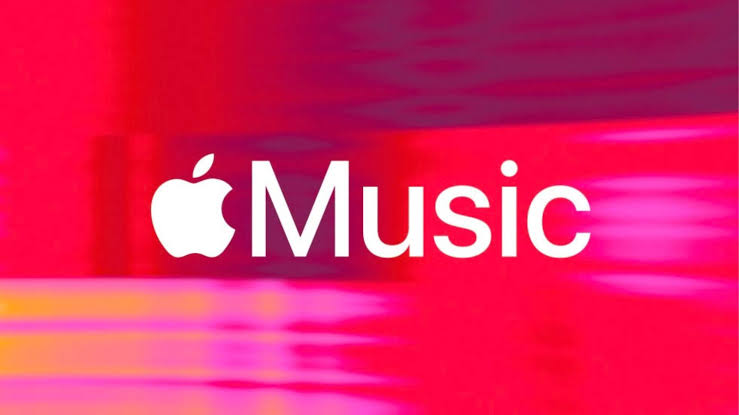On June 15, 2025, multiple sources reported that Apple has implemented a significant price adjustment for its Apple Music subscription in Nigeria, raising the cost of the Individual plan by 30%, from ₦1,000 to ₦1,300 per month effective on July 12, 2025. This detailed analysis aims to clarify the timeline, explore the reasons behind the price hike, and provide comprehensive insights into its implications for Nigerian subscribers, the competitive landscape, and Apple’s broader strategy in the region.
The price increase was first reported to take effect on June 22, 2025, as confirmed by reputable tech news outlets such as TechNext and Techloy, which noted that Apple notified subscribers via email about the adjustment. The email, sent to customers, stated that the Individual plan would rise to ₦1,300 per month starting June 22, unless subscribers canceled at least one day prior to the renewal date.
This change marks the first significant price adjustment for Apple Music in Nigeria since November 2022, when the Individual plan increased by 10% from ₦900 to ₦1,000. The decision to implement a 30% hike in 2025 has been attributed to the ongoing depreciation of the Naira against the US dollar, which has increased operational costs for international services like Apple Music. Additionally, the adjustment aligns Apple Music’s pricing with competitors such as Spotify and YouTube Music, both of which charge ₦1,300 per month for their individual plans in Nigeria.
Apple Music’s pricing structure in Nigeria includes three primary plans: Individual, Family and Student. As of May 2025, prior to the price hike, the Individual plan was priced at ₦1,000 per month, the Family plan at ₦1,500 per month (supporting up to six users), and the Student plan at ₦550 per month, offering discounted access for verified students. The recent 30% increase specifically affects the Individual plan, bringing it to ₦1,300, while no confirmed reports have detailed changes to the Family or Student plans as of June 2025.
The Family plan remains cost-effective for households, offering access for up to six users at a shared cost, while the Student plan continues to cater to budget-conscious students. Apple has not officially commented on whether other plans will see similar adjustments, but subscribers should monitor their accounts for updates.
The primary driver behind the price increase is likely the Naira’s depreciation, which has significantly impacted the cost of providing dollar-denominated services in Nigeria. The Naira’s value has fluctuated considerably, with exchange rates worsening in 2025, making it more expensive for companies like Apple to maintain consistent pricing in local currency. This economic challenge is not unique to Apple; competitors like Spotify have also adjusted prices in Nigeria, with Spotify raising its individual plan to ₦1,300 in 2024 to account for similar pressures. Additionally, Apple’s focus on enhancing its service offerings, such as lossless audio, Spatial Audio with Dolby Atmos, and curated playlists tailored to African markets, may contribute to the need for higher revenue to sustain these features.
Apple Music’s growth in Nigeria has been notable, with streams increasing by 119% year-over-year and the subscriber base doubling in recent years, according to Sensor Tower data. Despite this growth, Apple Music trails competitors like Boomplay and Audiomack, which offer premium plans at lower price points, such as ₦900 per month. Apple’s strategy to differentiate itself includes hyper-local curation, employing African creatives to design playlists and artwork that resonate with Nigerian audiences, and expanding its presence from 12 to 37 African countries. However, the price increase could challenge subscriber retention, particularly in a price-sensitive market like Nigeria, where economic constraints and inflation (reported at high levels by the Nigeria Bureau of Statistics) already strain consumer budgets.
Payment challenges further complicate the situation for Nigerian subscribers. Many local debit cards, particularly Naira MasterCards, are often rejected by Apple’s payment processor due to restrictions on international transactions and dollar limits imposed by Nigerian banks. To address this, alternatives such as virtual dollar cards from providers like Cardtonic or Apple Gift Cards have become popular workarounds. For example, users can purchase Apple Gift Cards from platforms like Prestmit, redeem them to top up their Apple ID balance, and use this balance to pay for subscriptions without relying on local bank cards. These methods ensure uninterrupted access to Apple Music, but they add an extra step for subscribers, potentially deterring new users in light of the price hike.
The competitive landscape in Nigeria’s music streaming market is fierce, with Spotify, YouTube Music, Boomplay, and Audiomack vying for market share. Spotify’s pricing alignment at ₦1,300 per month positions it as a direct competitor, offering a free ad-supported tier that Apple Music lacks. Boomplay and Audiomack, with their lower-cost premium plans, appeal to cost-conscious consumers, while Apple Music emphasizes premium features like high-resolution audio and integration with the Apple ecosystem. The price increase may push some subscribers to explore these alternatives, especially if they perceive Apple Music’s added features as insufficient to justify the ₦300 monthly increase. Apple’s focus on local curation and exclusive content, such as the 24/7 Chill radio station and Sound Therapy, aims to retain subscribers, but the success of this strategy remains to be seen.
For subscribers concerned about the price hike, Apple offers flexibility to manage subscriptions. Users can cancel their subscription at least 24 hours before the renewal date to avoid the new pricing, with instructions available through Apple Support or the Apple Music app settings. New subscribers may also take advantage of promotional offers, such as a six-month subscription for $2.99 (approximately ₦4,500 at current exchange rates), available until February 27, 2025, in celebration of Kendrick Lamar’s Super Bowl LIX Halftime Show performance. This promotion provides an affordable entry point for testing Apple Music’s premium features before committing to the standard rate.
In conclusion, Apple Music’s 30% price increase for the Individual plan in Nigeria, from ₦1,000 to ₦1,300, is most likely effective from June 22, 2025, based on credible reports, though conflicting claims suggest July 12, 2025. The hike reflects economic realities, competitive pressures, and Apple’s investment in premium features and local curation. Nigerian subscribers face challenges with payment methods and affordability, but alternatives like virtual dollar cards and gift cards offer solutions. As the streaming market evolves, Apple Music’s ability to balance value and cost will determine its growth in Nigeria’s competitive landscape. For further details, check your Apple Music account or visit https://www.apple.com/apple-music/.




